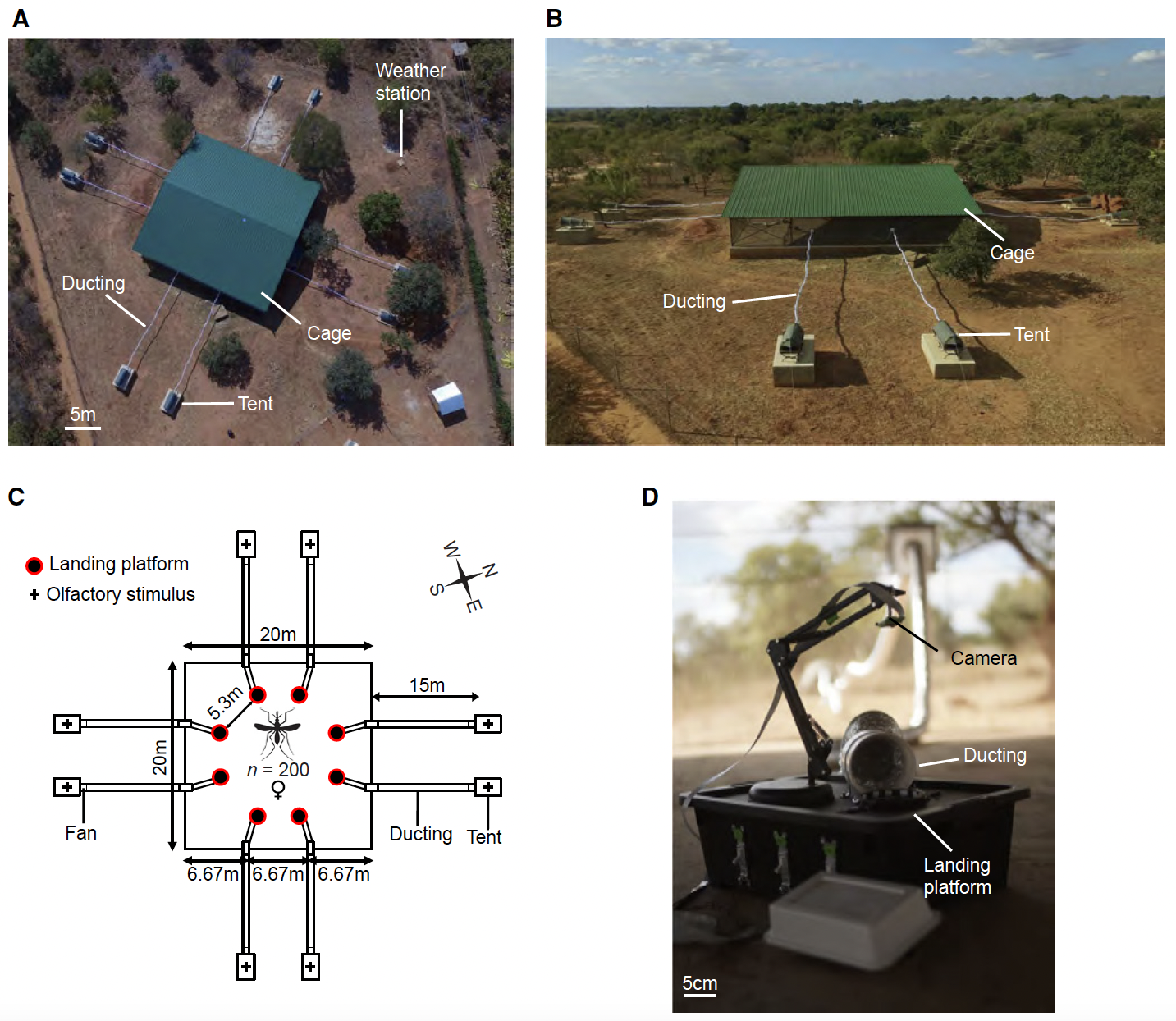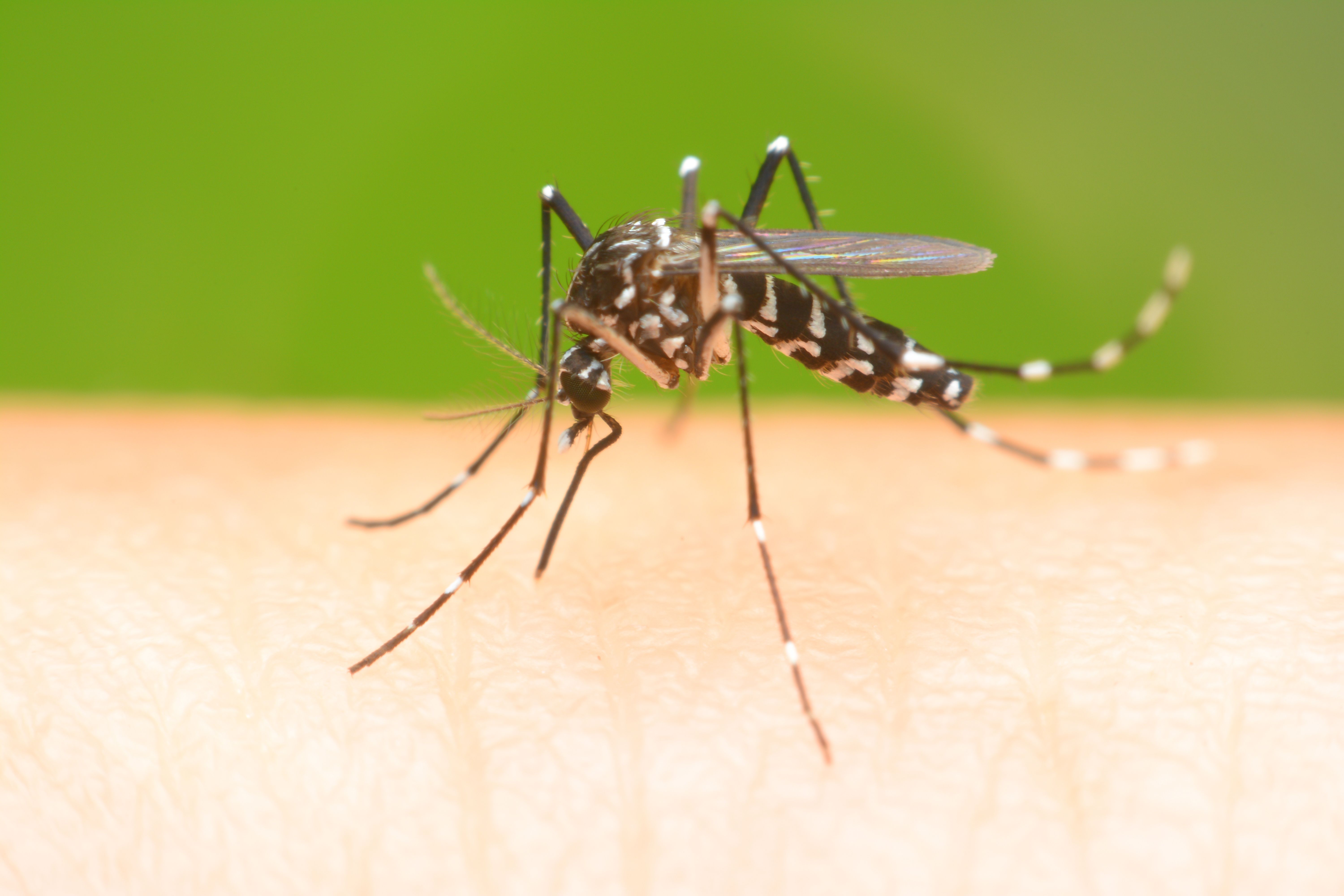Human Body Odors Tested for Mosquito Attraction in Zambia
Stephanie Rankin-Turner and colleagues at Johns Hopkins Bloomberg School of Public Health have recently performed research in Zambia indicating that mosquitoes are more attracted to humans who exhibit abundant levels of certain volatile carboxylic acids.
At the 71st American Society for Mass Spectrometry Conference on Mass Spectrometry and Allied Topics in Houston, Texas in June, Johns Hopkins Bloomberg School of Public Health postdoctoral fellow Stephanie Rankin-Turner delivered a presentation titled "Exploring Mosquito Olfactory Preferences with Whole Body Volatilomics," along with colleagues Diego Giraldo and Conor McMeniman.
LCGC editor Patrick Lavery recently followed up with Rankin-Turner about the team's findings, particularly with regard to how chromatographic techniques were used and what direction future research might take.
Read LCGC's day-of recap of Rankin-Turner's talk at ASMS 2023.
PL: I would like you to recap the setup of the experiment as you described it at ASMS. It sounds like an interesting design based on different body odors. What role did chromatography and mass spectrometry play in helping you gather that information?
SR-T: We're interested in understanding the chemical basis of mosquito host-seeking and preference. Mosquitoes detect and navigate towards humans using the rich blend of volatile organic compounds we release via our skin and breath. We have known for a while now that mosquitoes find the scent of some humans more attractive than others, but the specific chemistry driving this preference is not well understood. If we can deduce the aspects of human scent that are particularly attractive to mosquitoes, we can leverage that information to boost the attractiveness of mosquito traps by creating synthetic lures that mimic the body odor of highly attractive people.
To do this, we developed a large outdoor testing arena at the Macha Research Trust in Zambia which allows us to compare the attractiveness of the body odor of different people to mosquitoes. This screened flight cage contains 200 mosquitoes that are free to fly around under naturalistic conditions. Surrounding the arena are six tents, each occupied by a sleeping human. We duct whole body odor from each of these tents into the central flight cage, where the mosquitoes can encounter and choose between these different human odors. Using custom-designed recording platforms, we can then track and quantify which participant's body odor receives the most attention from the mosquitoes throughout the night (this study was performed using the nocturnal African malaria mosquito Anopheles gambiae). Whilst this is happening, we collect air samples from each of the tents onto thermal desorption tubes for analysis by TD–GC–MS, allowing us to perform whole body volatilomics to study the chemical variation in the body odor of each participant. At the end of this process, we have two critical pieces of information; who of our six-person cohort was most attractive to mosquitoes over consecutive nights, and what is so unique about the chemistry of their body odor that could be driving this preference. By repeating this study night after night with multiple cohorts of different people, we will be able to use mass spectrometry to identify the components of human scent associated with being highly attractive to mosquitoes and, conversely, those associated with low attractiveness. This could help us identify novel mosquito attractants and repellents.
Giraldo, D.; Rankin-Turner, S.; Corver, A.; et al. Human scent guides mosquito thermotaxis and host selection under naturalistic conditions. Curr. Biol. 2023, 33 (12), 2367-2382. DOI: 10.1016/j.cub.2023.04.050

PL: Were the odors of your study participants all organic, let’s say, or did some apply repellent and some not (I see that eucalyptol was particularly unattractive to the mosquitoes)?
SR-T: In this study we were evaluating the attractiveness of each participants' natural body odor, so we weren't introducing any synthetic attractants or repellents into the experiment. We also have our participants wash using a scent-free soap to eliminate interference from cleaning products, avoid eating particularly odorous foods, and wear standardized clothing. By studying associations between high or low attractiveness to mosquitoes and the abundance of certain volatile chemicals, we can identify aspects of human scent that may be driving this preference mosquitoes have for certain people. For instance in this study, the participant who attracted the lowest number mosquitoes over the six nights exhibited significantly higher levels of eucalyptol in their body odor, which is interestingly known to have repellent properties.
PL: Were there factors other than simple attraction to a particular odor that helped you draw certain conclusions? I guess what I mean by that is, did the mosquitoes exhibit more energy in their attraction to one compound over another?
SR-T: In this assay we are introducing whole body odor to the mosquitoes, so they're encountering complex blends of hundreds of volatile organic compounds rather than individual compounds. We determine how attractive a particular odor is by using an odor-guided thermotaxis assay. This consists of a heated landing platform onto which we duct human odor and an infrared camera to record the number of mosquitoes landing on each of the six odor-baited platforms. Using a video tracking algorithm, we can measure a person's relative attractiveness to mosquitoes based on the number of individual mosquito landings their odor receives throughout the night.
Mosquito on a human hand sucking blood | Image Credit: © bankerfotos - stock.adobe.com

PL: What might future research suggest? It seems we usually think that healthy humans are infected by infected mosquitoes. But could humans carrying certain diseases actually attract mosquitoes?
SR-T: You're absolutely right that healthy humans are infected by infected mosquitoes (e.g. those carrying the Plasmodium parasite that causes malaria), but prior to this that mosquito will have bitten a human already infected with Plasmodium. Numerous studies have shown that people with malaria appear to be more attractive to humans, presumably due to some kind of parasite-induced change to their body odor. If this is true, you can imagine the implications this could have for the spread of disease in communities, if infected people are more likely to be bitten by mosquitoes than healthy people. The chemical basis behind this phenomenon isn't very well studied to this point.
Minor edits to Stephanie Rankin-Turner's answers were made for length and clarity.
For more coverage of ASMS 2023, click here.
Reference
Giraldo, D.; Rankin-Turner, S.; Corver, A.; et al. Human scent guides mosquito thermotaxis and host selection under naturalistic conditions. Curr. Biol. 2023, 33 (12), 2367-2382. DOI: 10.1016/j.cub.2023.04.050
New Study Reviews Chromatography Methods for Flavonoid Analysis
April 21st 2025Flavonoids are widely used metabolites that carry out various functions in different industries, such as food and cosmetics. Detecting, separating, and quantifying them in fruit species can be a complicated process.

.png&w=3840&q=75)

.png&w=3840&q=75)



.png&w=3840&q=75)



.png&w=3840&q=75)



